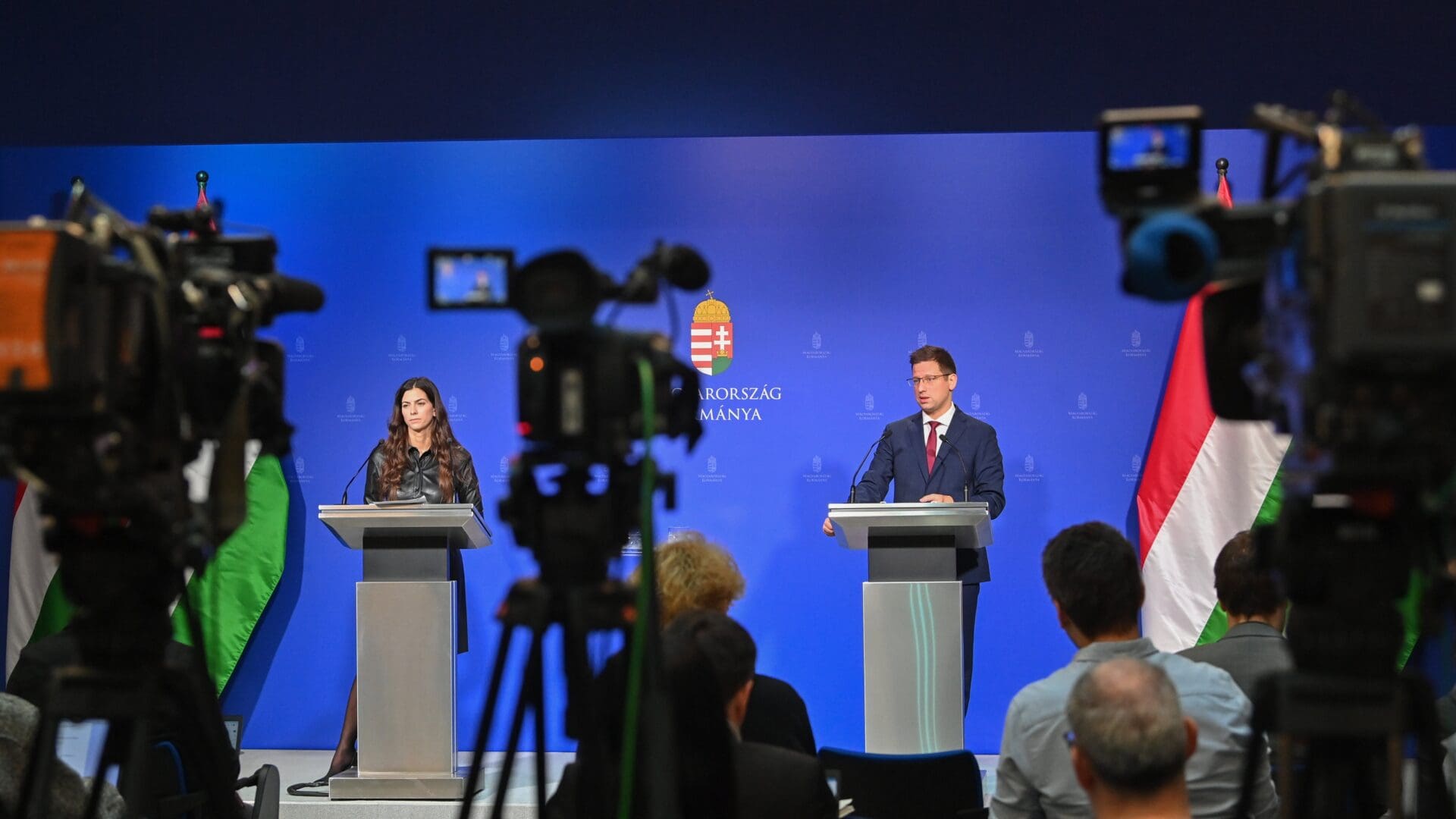On Thursday, 20 April, Chief of the Prime Minister’s Cabinet Gergely Gulyás and government spokesperson Alexandra Szentkirályi held their regular press briefing in Budapest.
Price Cap
Minister Gulyás announced that the government has decided to maintain the current price cap of products until 30 June. He stressed that ‘as long as there is a war and there are sanctions, there will be inflation’. He reiterated that the government is committed to bringing down the rate of inflation to a single digit by the end of the year and stressed that inflation is in fact on a downward trajectory. He also welcomed a recent statement from the Hungarian National Bank that said that the Monetary Council may decide next week to lower the upper threshold of the interest rate corridor.
Free Irrigation
Gulyás also announced that the government will make sure agricultural enterprises have access to free irrigation. He said that the government is committed to reducing the significant damage farmers endured because of the droughts last year, so it will help them pay for water consumption.
The minister also informed the press that the government has imposed a ban on 25 agricultural products from Ukraine, including grain, sunflower seeds, cooking oil, and specific meat products until 30 June. He added that despite the ban, transit shipments will not be blocked. He also noted that while according to the European Commission, Ukraine grain exports should be facilitated to ease the food shortage in Africa, these imports could in fact ‘ruin the Hungarian agricultural market instead’.
The Russo-Ukrainian War
On the topic of the war, Gulyás said that Hungary is still ‘unwaveringly pro-peace’. He insisted that avoiding the involvement of NATO in the conflict is in the interest of the whole world, as such a scenario would lead to a nuclear world war. He added that hundreds of thousands have died already in the war, and more and more weapons are reaching the front lines on both sides, which all point in the direction of a protracted war. He opined that the steps taken that escalated and extended the conflict were irresponsible, because they made the risk of a nuclear war real. As opposed to that, the Hungarian government is unwaveringly on the side of peace, and it did not send weapons to the war and did not allow the transit of weapons through its territory, he reminded.
New Government Regulation to Prescribe Food Discounts to Retailers
Government spokesperson Alexandra Szentkirályi announced that the government will instruct major retail chains to offer discounts in order to lower prices. She said that the improvement in the inflation data is already visible due to the measures taken to curb inflation, however, the cabinet decided to introduce a new tool based on Greek and French examples. It will be in effect by 1 July the latest. The regulation is set to classify basic food items into 20 categories. The retailers affected will have to offer a product of their choice in all of these categories at a price that is at least 10 per cent lower than the price in effect in the 30 days preceding the special offer. She added that products must be selected every week for these special offers so that they may cover a wide range of products. She also stated that these discounts cannot be applied to already price-capped items.
Helping Micro-Companies
Gergely Gulyás stated that the government will reduce the electricity prices that smaller businesses that use energy above the average consumption limit. He said that the measure will apply to companies employing ten or fewer people, where profits do not exceed 2 million euros a year. He expressed hope that this would boost the Hungarian economy and increase the viability of small ventures.








